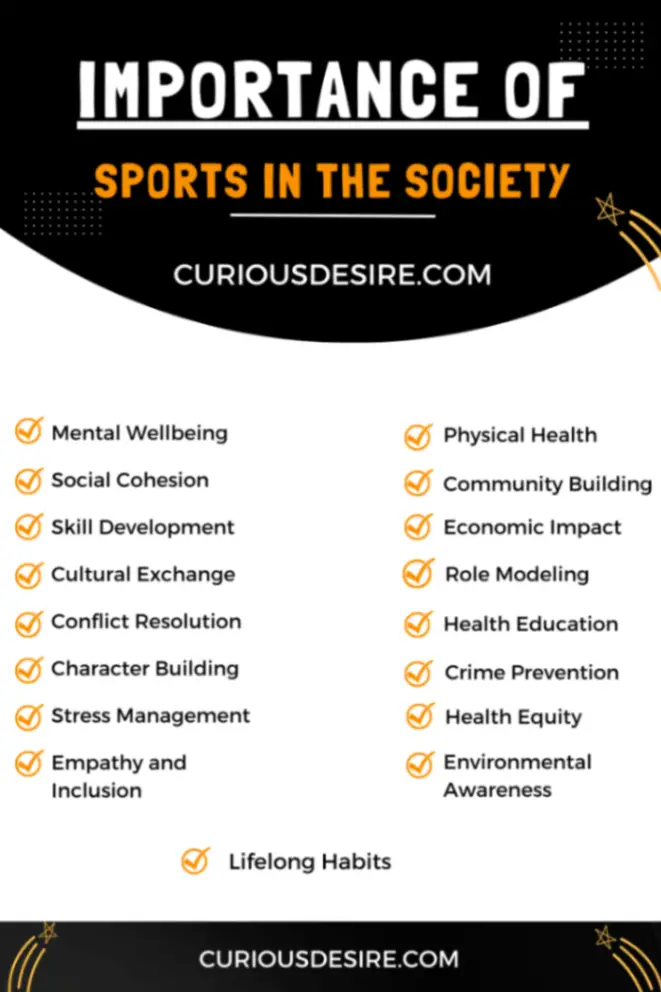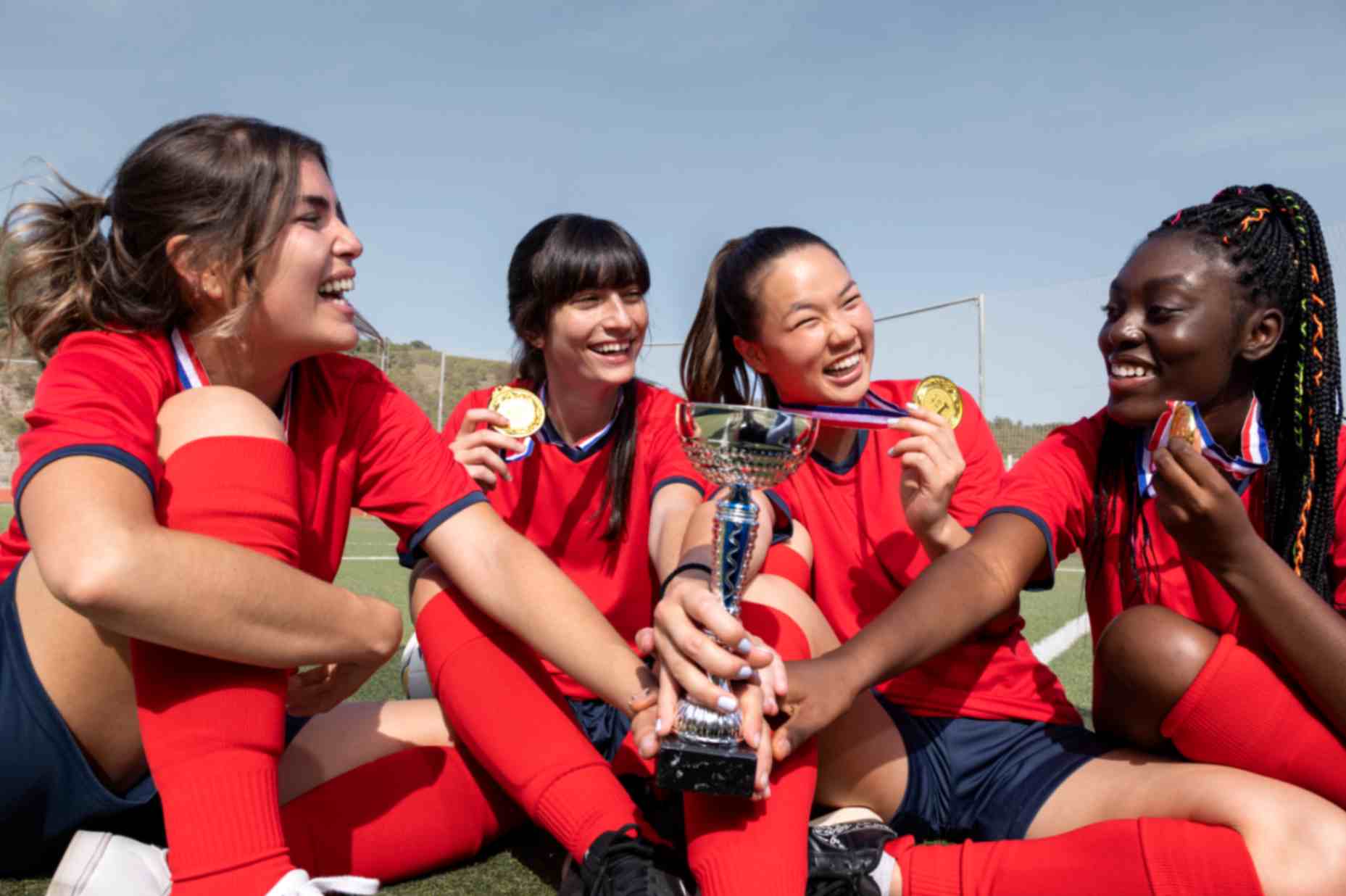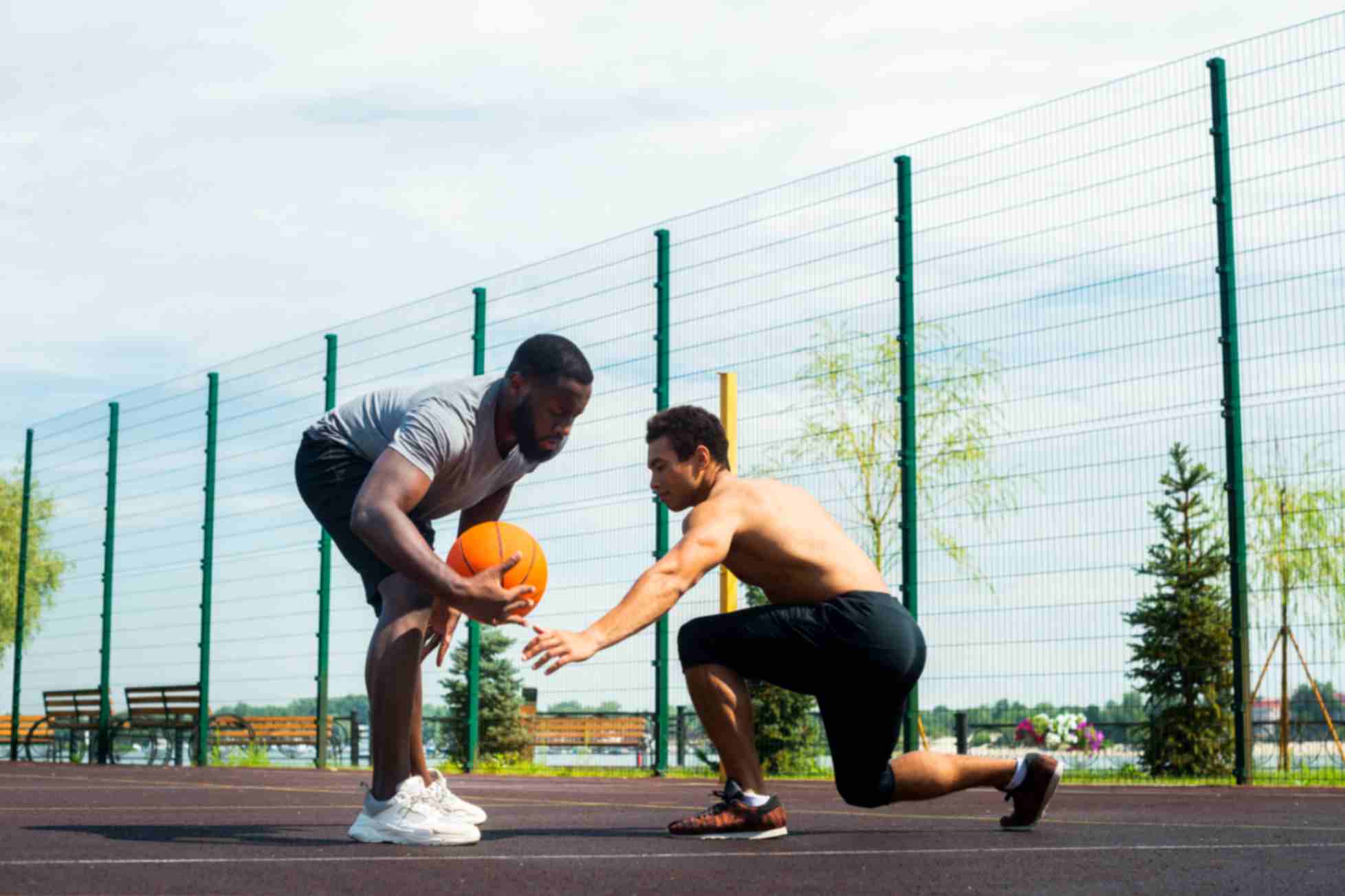With their perfect mix of drama, excitement, and togetherness, sports play a prominent role in human society, captivating audiences around the world.
Sports have been integral to the human experience for centuries, bringing people together, instilling discipline, and promoting physical and mental well-being.
From the ancient Olympic Games to modern sporting events, the significance of sports in society cannot be overstated.
Sports provide entertainment and play a vital role in shaping communities, fostering teamwork, and promoting a healthy lifestyle.
Let’s explore the multifaceted importance of sports in society, and examine their impact on you, communities, and nations.
5 most common reasons for the importance of sports in the society:
- Physical Health
- Community Building
- Mental Well-being
- Conflict Resolution
- Character Building

1. Physical Health
One of the most apparent benefits of sports is their contribution to physical health.
Participation in sports and physical activities reduces the risk of obesity, heart disease, diabetes, and other chronic conditions.
Regular exercise through sports helps you to develop strength, endurance, and flexibility. Furthermore, engaging in sports promotes a physically active lifestyle, leading to improved overall health and well-being.
Research shows that insufficiently active people have a 20% to 30% increased risk of death compared to sufficiently active people.
2. Mental Well-being
Sports are not just about physical health; they significantly boost mental health by reducing stress, anxiety, and depression levels, enhancing mood and overall happiness.
- Stress Reduction: Engaging in sports triggers the release of endorphins, the body’s natural mood lifters. This chemical reaction not only diminishes the perception of pain but also helps in alleviating stress.
- Improved Mood: Regular participation in sports contributes to an overall better mood, combating feelings of depression and anxiety
- Cognitive Benefits: Participation in sports has been shown to improve cognitive functions, including better concentration, enhanced creativity, and quicker problem-solving skills
- Sleep Improvement: Physical activity through sports can contribute to better sleep habits. By helping to alleviate anxiety and stress, sports can make it easier for you to fall asleep and deepen the sleep cycle
3. Social Cohesion
Sports bring people together from different backgrounds, cultures, and ages, promoting social cohesion and unity within communities.
Whether it’s a neighborhood pickup game or an international competition, sports serve as a common ground where differences are set aside in favor of shared goals and experiences.
This unity in diversity promotes mutual understanding and respect, key components in nurturing a cohesive social fabric.
4. Community Building
Sports play a vital role in community building by providing you with a platform to come together for a common purpose.
The collective experience of playing, watching, and celebrating sports contributes to a shared community identity.
Athletic achievements, whether at the local, national, or international level, can ignite a sense of pride and collective joy among communities. Celebrations of these achievements become shared moments of happiness that strengthen communal bonds.
5. Skill Development
In the world of sports, one’s physical abilities are not the only focus; it is also a constantly evolving environment where a diverse range of skills are cultivated, refined, and perfected.
Sports are a powerful medium for teaching the nuances of teamwork and the importance of collaboration.
Leadership is another critical skill developed through sports. Captains and team leaders play pivotal roles, not just in strategy and gameplay but in motivating and inspiring their teammates.
Athletes are constantly faced with the need to make split-second decisions, anticipate opponents’ moves, and devise strategies on the go.
This nurtures a keen sense of strategic thinking and problem-solving, enhancing cognitive abilities such as planning, analysis, and critical thinking
6. Academic Performance
Engaging in sports can improve concentration, cognitive function, and memory, leading to better academic outcomes.
- Improved Concentration and Classroom Behavior: Regular physical activity has been shown to enhance cognitive function, which can lead to better concentration and focus in the classroom.
- Time Management Skills: Student-athletes often develop exceptional time management skills, learning to balance the demands of their sport with their academic responsibilities.
- Increased Aspiration and Achievement: Participation in sports can boost self-esteem and motivation, which are critical factors in academic aspiration and success.
7. Economic Impact
The sports industry contributes significantly to the economy through job creation, tourism, and infrastructure development.
Major sporting events often lead to the development of infrastructure, including stadiums, transport, and hospitality facilities, which can stimulate local economies and provide lasting community benefits
International competitions and national leagues attract tourists, boosting local businesses and raising the profile of the host city or country on the world stage.
This increased visibility can have long-term economic benefits, including enhanced investment and tourism.
8. Cultural Exchange
Sports provide a platform for cultural exchange and understanding as athletes and fans from diverse backgrounds come together to celebrate their shared passion for the game.
Events like the Olympic Games and the FIFA World Cup bring together athletes and fans from around the world, promoting a spirit of unity and friendship across nations. ‘
These events offer unique opportunities for cultural exchange, allowing you to share and learn from each other’s traditions and values.

9. Personal Empowerment
Through the challenges and triumphs experienced in sports, you gain a deeper understanding of your capabilities, strengths, and potential.
Achieving personal goals and overcoming obstacles in sports translates into increased confidence, not just in athletic pursuits but in all facets of life.
Sports encourage you to think independently, make decisions, and take responsibility for your actions. This autonomy in the sporting arena fosters a sense of independence that is vital for personal empowerment.
10. Role Modeling
The influence of role models in sports cannot be overstated. Athletes often stand as pillars of inspiration, demonstrating what can be achieved through dedication, hard work, and integrity.
Athletes as role models can promote positive behaviors, such as teamwork, fair play, and sportsmanship. Through their conduct on and off the field, they can influence fans and followers to emulate these values in their own lives.
Athletes as role models can influence public attitudes towards health and fitness, encouraging us to adopt more active and healthy lifestyles.
11. Conflict Resolution
Sports have the potential to promote peace and conflict resolution by providing a platform for nations and communities to come together in a spirit of healthy competition.
Sports require you to negotiate with teammates, opponents, and officials, teaching the art of compromise and the importance of finding mutually beneficial solutions.
The competitive nature of sports teaches you to manage your emotions, even in high-stress situations. This emotional control is vital in conflict resolution, enabling you to approach disagreements calmly and rationally.
12. Health Education
Through sports, you can learn about the importance of physical activity, nutrition, and overall wellness.
Athletes learn the impact of nutrition on performance, gaining insights into the principles of a balanced diet. This knowledge fosters healthy eating habits, crucial for long-term health and well-being.
Sports programs often include education on the dangers of substance abuse, including performance-enhancing drugs, alcohol, and tobacco, encouraging athletes to make healthy lifestyle choices.
According to research, about 7.8 million high school students participate in sports in the United States.
13. Character Building
Sports help shape character by instilling values such as sportsmanship, respect, integrity, and perseverance.
- The dedication required in sports training fosters discipline and a strong work ethic, traits that are valuable in every aspect of life.
- Being part of a team teaches you about responsibility, both to yourself and to others.
- Integrity, including honesty, fairness, and respect for rules and opponents, is a core value promoted in sports.
- Overcoming challenges and setbacks in sports teaches you resilience, and the ability to bounce back from adversity.
14. Stress Management
Engaging in sports activities can serve as an effective stress management tool, as physical exercise is known to reduce cortisol levels and alleviate tension.
Participation in sports offers a mental diversion, allowing you to temporarily disconnect from the stressors of life and focus on the immediate demands of the game.
Regular physical activity can improve sleep quality, which is often negatively affected by stress. Better sleep contributes to overall well-being and stress management.
15. Crime Prevention
Sports programs, particularly for at-risk youth, play a significant role in crime prevention by providing a positive environment for personal development.
The discipline learned through sports, including adherence to rules and respect for authority and opponents, can translate into law-abiding behavior and a greater respect for societal norms.
Sports offer alternative pathways for success and recognition outside of illicit activities. For many, it opens doors to scholarships, careers, and social mobility, thereby reducing the allure of criminal activities
16. Health Equity
Sports programs help promote health equity by providing opportunities for people from diverse socioeconomic backgrounds to access physical activity and wellness resources.
By providing low-cost or free access to sports programs, communities can help bridge the gap in physical activity levels among different socioeconomic groups, contributing to better overall health.
Sports programs can serve as platforms for health interventions, including nutrition education and screenings for health conditions, directly addressing disparities in health education and healthcare access.

17. Enhanced Productivity
Regular physical activity boosts overall health, leading to fewer sick days, reduced healthcare costs, and a more energetic workforce.
Physical activity has been linked to improved cognitive function, including concentration, memory, and creativity, all of which contribute to better performance in professional settings.
Studies have found that employees who engage in regular physical activity are up to 50% more productive than their sedentary counterparts.
18. Empathy and Inclusion
Sports can foster empathy and inclusion by promoting teamwork, empathy, and understanding of diverse perspectives.
Sports inherently require you to work together towards a common goal, which fosters a natural environment for empathy to grow.
You learn to understand and share the feelings of your teammates, appreciating diverse perspectives and challenges, which can lead to stronger, more cohesive teams.
Ensuring sports programs are accessible to all, including those with disabilities, from different socio-economic backgrounds, or underrepresented groups, is crucial.
This not only promotes fairness and equity but also enriches the sports experience by bringing a wide range of talents and perspectives to the field.
19. Environmental Awareness
Some sports activities, such as outdoor pursuits, promote environmental awareness and conservation.
Many sports organizations and events are increasingly implementing sustainable practices, such as minimizing waste, using renewable energy, and promoting recycling.
These initiatives not only reduce the environmental impact of sports but also serve as public education platforms on sustainability.
20. Lifelong Habits
Engaging in sports from a young age can instill lifelong habits of physical activity and healthy living.
- Physical Fitness: Regular participation in sports from a young age encourages a routine of physical exercise, helping to establish lifelong habits of physical activity.
- Mental Health: The psychological benefits of sports, including stress relief, improved mood, and enhanced self-esteem, can foster lifelong habits of mental health care and resilience in the face of challenges.
- Social Connections: Sports offer opportunities to build and maintain social connections, teaching the importance of community and support networks.
- Discipline and Time Management: The discipline required for sports training, including time management, goal setting, and perseverance, translates into valuable life skills that can contribute to personal and professional success.
Conclusion
The importance of sports in society is multifaceted and far-reaching.
From promoting physical and mental well-being to fostering community cohesion and international understanding, sports play a vital role in shaping individuals, communities, and nations.
By recognizing the significance of sports and prioritizing their integration into society, we can build healthier, stronger, and more inclusive communities for current and future generations.
Here’s to shaping a better future for all!